
Imago
Image Credits: IMAGN

Imago
Image Credits: IMAGN
With just two seconds remaining, Isaiah Collier sealed the deal for the Utah Jazz, driving to score the game-winning layup. His clutch play handed the Jazz a thrilling 112-111 overtime victory against the Brooklyn Nets on Sunday night. But he did have a chance to get his team over the line in the last possession before overtime.
Watch What’s Trending Now!
Winning might not always be the priority, but the effort on the court tells a different story. The Jazz-Nets game was a classic reminder that tanking isn’t about the players. Front offices pull those strings, and occasionally, coaches might play along. But the guys in jerseys? They’re grinding out every possession like their next contract depends on it—because, let’s be honest, it probably does.
When the score was tied at 102-102, and the Jazz had the ball, Collin Sexton was asking for it since their own backcourt, but Isaiah Collier paid no heed. He was taking his own sweet time. With a lot of time to attempt a shot, he did not pass the ball to Collin Sexton. And boom, the whistle went off, 8-second violation.
ADVERTISEMENT
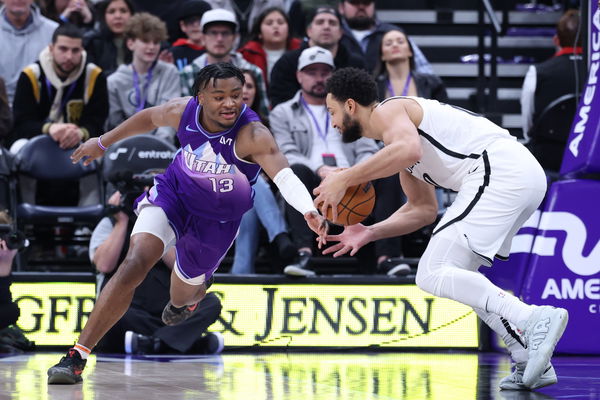
Imago
Jan 12, 2025; Salt Lake City, Utah, USA; Utah Jazz guard Isaiah Collier (13) and Brooklyn Nets guard Ben Simmons (10) go for the ball during overtime at Delta Center. Mandatory Credit: Rob Gray-Imagn Images
Sexton was livid. He was shouting, “Give me the f–k–g ball”.
Later, when they headed to the bench, they were going at each other. Sexton wanted to win it right then and there. He did not care about the draft picks, when the players are on the court, winning is what matters to them.
ADVERTISEMENT
But this incident was very suspicious. It was almost as if the Jazz were tanking on purpose, it all felt planned. Fans, actual fans who want to witness the best basketball being played are tired of these shenanigans. Today, most of them made up their minds.
ADVERTISEMENT
Fans call out the Utah Jazz and allege that Isaiah Collier ran down the clock on purpose
A Nets fan tweeted, “@NBA sanction them! Give us the first pick.” With Brooklyn also languishing at 12th in the East, the frustration is understandable. Fans want fair competition, not games dictated by lottery ambitions. If tanking allegations hold any weight, the league needs to step in. They don’t want scripted outcomes veiled in poor execution. The Mavs did it in 2023, they lost the last two matches in regular season so that they could keep their first round draft pick.
“This is how you breed losing culture… tanking,” wrote another fan. A culture of intentional losing often erodes trust, morale, and competitiveness—not just among fans but also within the team. When players, like Collin Sexton, are grinding it out and giving their all, yet organizational decisions prioritize draft odds over winning, it creates a disconnect. It’s one of those situations where it feels like a bait-and-switch. You wait to make big move and then suddenly you’re not even trying? It definitely doesn’t look great and definitely leaves fans scratching their heads.
Top Stories
Indiana Fever Makes WNBA Announcement on Caitlin Clark’s 24th Birthday
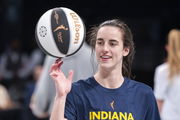
Jeanie Buss Takes Action After ESPN Reveals LeBron James’ Dirty Laundry
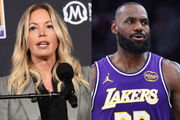
Jonathan Kuminga’s Four-Word Injury Update Sparks Concern as Steve Kerr Confirms MRI
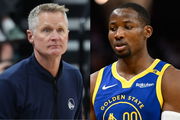
Jason Kidd Warns Lakers Ahead of Luka Doncic’s Dallas Return as Dangerous Situation Unfolds
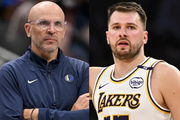
LeBron James’ Ungrateful Behavior Over Bronny’s $7.9M Lakers Move Irked Jeanie Buss

This is how you breed losing culture…tanking
— Big Dog Pistons (@bigdogpistons1) January 13, 2025
ADVERTISEMENT
“NBA is a joke. Teams tanking already in January, the product is as bad as it’s ever been.” This fan’s take echoes a growing sentiment among viewers. When teams start tanking early in the season, it doesn’t just affect their fan base; it impacts the entire league’s credibility and entertainment value.
The NBA has seen a decline in ratings in recent years, with fans increasingly tuning out when they feel the product lacks authenticity. For fans who dedicate time and money to follow their teams, tanking feels like a betrayal.
Another fan tweeted “Jazz know what they’re doing”. The Jazz, sitting at 14th in the Western Conference, seem to be embracing a long-term rebuild rather than focusing on immediate success. It’s a strategy that might pay off in the draft but costs the league credibility in the process. Is it worth it? Well, I think you have the answer after seeing all these fan comments.
ADVERTISEMENT
A know-it-all fan calmly stated, “Jazz playing for lottery balls… just chill out, guys.” The accusation here is clear: the Jazz are prioritizing draft lottery odds over competitive basketball. To some extent, this is a reality of the NBA’s current structure. The league indirectly incentivizes losing for struggling teams by offering them higher chances at acquiring generational talent in the draft.
What do you think? Looking at all this from the other side, though, in all fairness, why wouldn’t a team want Cooper Flagg next season? He almost beat Team USA! So, should the NBA step in and set things right? What would you have done?
ADVERTISEMENT
ADVERTISEMENT
ADVERTISEMENT